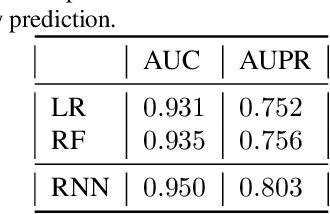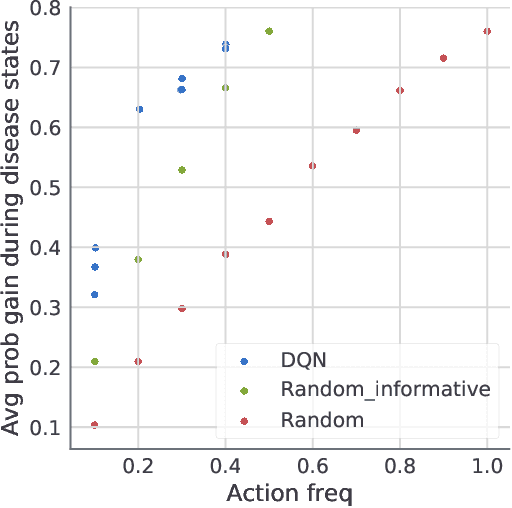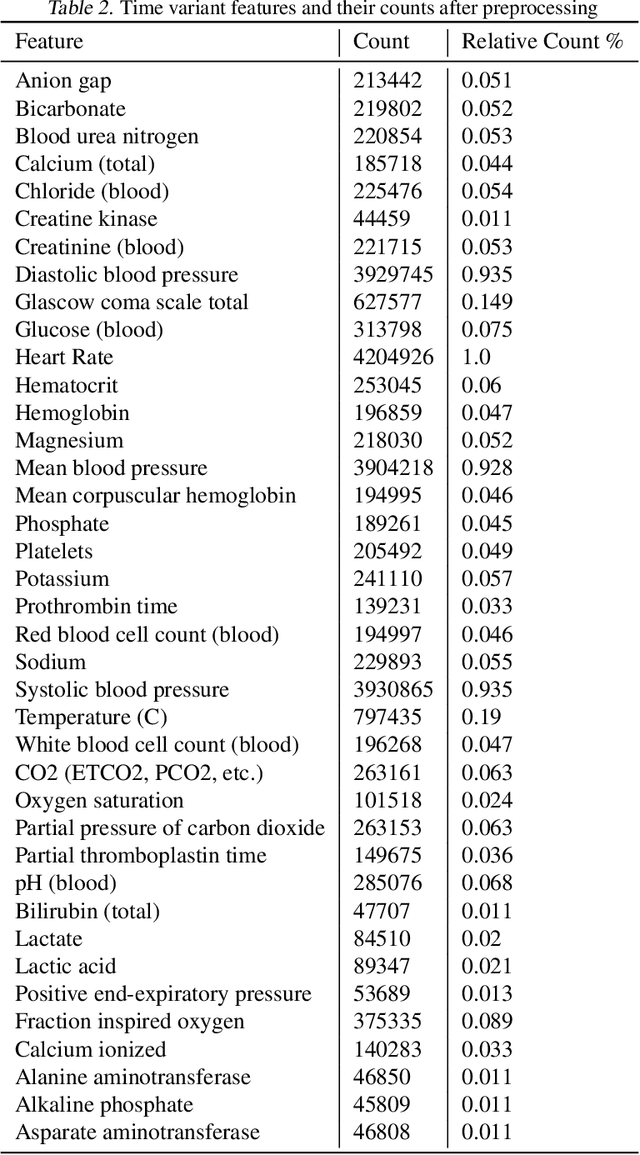Dynamic Measurement Scheduling for Event Forecasting using Deep RL
Paper and Code
Jan 24, 2019



Current clinical practice for monitoring patients' health follows either regular or heuristic-based lab test (e.g. blood test) scheduling. Such practice not only gives rise to redundant measurements accruing cost, but may even cause unnecessary patient discomfort. From the computational perspective, heuristic-based test scheduling might lead to reduced accuracy of clinical forecasting models. A data-driven measurement scheduling is likely to lead to both more accurate predictions and less measurement costs. We address the scheduling problem using deep reinforcement learning (RL) and propose a general and scalable framework to achieve high predictive gain and low measurement cost, by scheduling fewer, but strategically timed tests. Using simulations we show that our policy outperforms heuristic-based measurement scheduling with higher predictive gain and lower cost. We then learn a scheduling policy for mortality forecasting in the real-world clinical dataset (MIMIC3). Our policy decreases the total number of measurements by 31% without reducing the predictive performance, or improves 3 times more predictive gain with the same number of measurements using off-policy policy evaluation.
 Add to Chrome
Add to Chrome Add to Firefox
Add to Firefox Add to Edge
Add to Edge